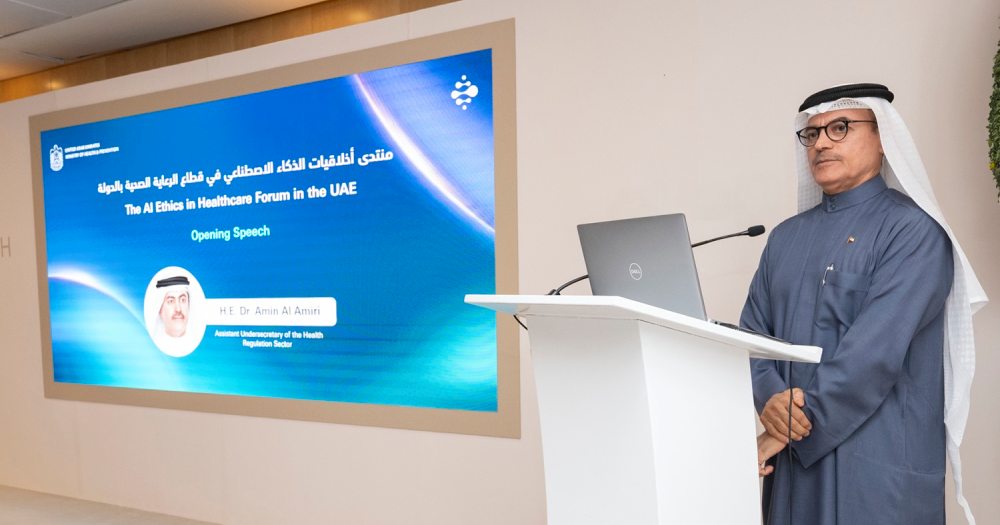MoHAP organizes a forum on the ethics of AI in healthcare

Artificial intelligence (AI) is shaking up the healthcare world, promising faster diagnoses, personalized treatment plans, and cutting-edge medical innovations. But with great power comes great responsibility. That's why the UAE's Ministry of Health and Prevention (MoHAP) recently brought together key players for a high-stakes discussion on the ethics of AI in healthcare.
In collaboration with major partners — including the Department of Health-Abu Dhabi, Dubai Health Authority, UAE University, and Mohamed bin Zayed University of Artificial Intelligence — the forum tackled the big questions: How do we keep AI fair? How do we protect patient data? And how do we ensure these technologies build trust instead of fear?
How did it work?
At the heart of the conversation was a draft ethical framework developed by the National Centre for Health Research, working alongside strategic stakeholders. This framework is set to become the backbone of ethical AI use in UAE healthcare. It aims to protect personal data, promote transparency, and standardize best practices.
"The Ministry of Health and Prevention, in collaboration with strategic partners, has been committed to developing a comprehensive ethical framework," said His Excellency Dr. Amin Hussain Al Amiri, Assistant Undersecretary of Health Regulations Sector. "This framework is based on fundamental pillars, including protecting health data privacy, ensuring transparency and fairness in AI applications, improving the quality and accuracy of results, and building community trust in advanced health technologies."
By laying out clear guidelines, MoHAP hopes to ensure AI remains a powerful tool for good — one that enhances patient outcomes without compromising ethics or safety.
Why does it matter?
AI in healthcare is evolving at lightning speed, revolutionizing medical diagnostics, treatment plans, and patient monitoring. But without proper guardrails, it can also lead to bias, privacy breaches, and misinformation. That's why the UAE is stepping up to the plate, making sure AI development isn't just fast — it's also fair and responsible.
Dr. Al Amiri stressed that as a federal regulatory body, the ministry must "stay ahead of these changes," ensuring AI in healthcare meets the highest standards of quality and patient safety. Establishing this framework isn't just a precaution — it's a necessity in today's rapidly digitizing world.
The context
This initiative is part of a broader effort by the UAE to position itself as a leader in AI-driven healthcare. The forum wasn't just about regulations — it was about fostering a development-friendly ecosystem where AI can thrive responsibly. Participants from government agencies, academic institutions, and healthcare organizations examined the current AI landscape, debated best practices, and refined the ethical framework based on expert insights.
An interactive session allowed attendees to provide real-time feedback, fine-tuning the framework to ensure it covers all bases. The forum also underscored the importance of collaboration — between regulators, tech developers, and healthcare professionals — to build a future where AI enhances healthcare without ethical compromises. Raising awareness and training medical professionals to navigate AI's ethical landscape is now a priority, ensuring they have the skills and knowledge to engage with these technologies effectively.
With AI poised to redefine modern medicine, this ethical framework could serve as a roadmap for the future, ensuring the UAE leads the way in responsible, cutting-edge healthcare innovation.
💡Did you know?
You can take your DHArab experience to the next level with our Premium Membership.👉 Click here to learn more
🛠️Featured tool
 Easy-Peasy
Easy-Peasy
An all-in-one AI tool offering the ability to build no-code AI Bots, create articles & social media posts, convert text into natural speech in 40+ languages, create and edit images, generate videos, and more.
👉 Click here to learn more


